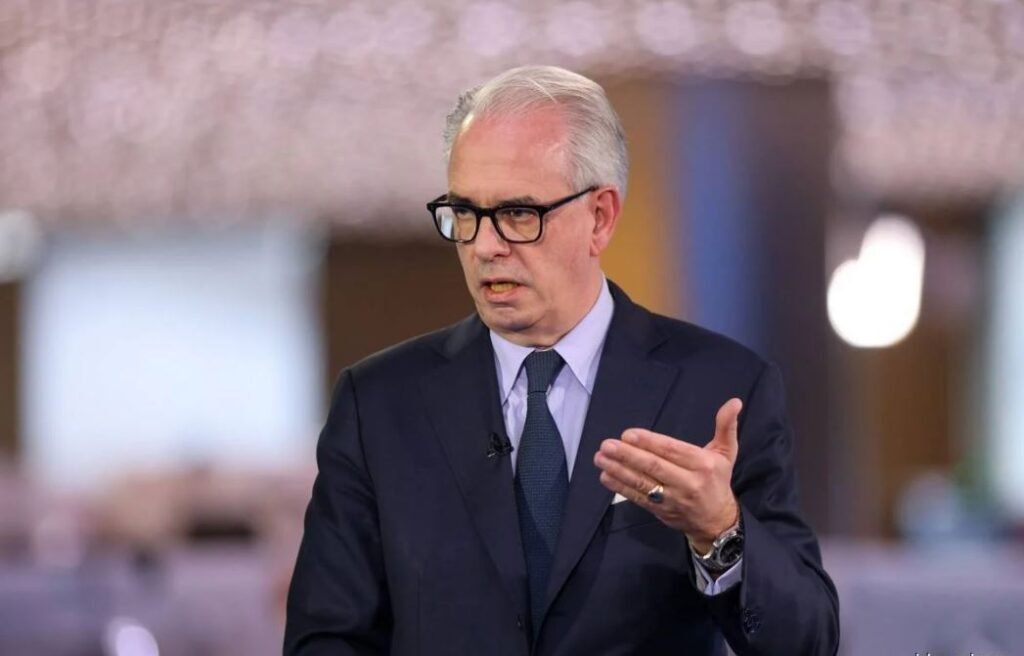To strengthen its finances, Credit Suisse announced on Thursday that it would borrow up to 50 billion francs ($54 billion; £44.5 billion) from the Swiss central bank.
Taking “decisive action to preemptively enhance its liquidity,” the lender declared.
Authorities have already stated that, if required, they would intervene to assist the struggling banking behemoth.
According to the BBC, the Bank of England has spoken with Credit Suisse and Swiss authorities.

Investors are worried about the state of Credit Suisse because its situation has heightened concerns of a wider banking catastrophe. Investors have already been alarmed by US bank failures.
Following the bank’s announcement that it had discovered “weakness” in its financial reporting, shares of the company fell 24% to a record low on Wednesday.
The concerns spread to the stock markets, causing a severe decline in all major indices.
Credit Suisse said the borrowing measures “show strong action to strengthen Credit Suisse as we continue our strategic transformation to deliver value to our clients and other stakeholders”.

Ulrich Koerner, the bank’s chief executive, said in a statement, “My team and I are resolved to move forward swiftly to offer a simpler and more focused bank oriented around client requirements.
In an effort to allay investor concerns, the Swiss National Bank (SNB) and the Swiss Financial Market Supervisory Authority stated that they were prepared to assist Credit Suisse if necessary.
In a joint statement, they stated that there were “no signs of a direct danger of contagion” for Swiss banks as a result of the recent instability in the US banking system.
In order to “guarantee their stability,” strict regulations are applied to Swiss financial institutions. According to the regulators, Credit Suisse satisfies the criteria for systemically important banks.

The SNB will give [Credit Suisse] liquidity if required, they added.
According to the BBC, the Bank of England has communicated with Credit Suisse and the Swiss government to keep tabs on the issue.
Earlier, there had been pressure on banking shares all around the world due to concern over weakness at such a significant international player, with the Stoxx Europe banking share index falling 7%.
The FTSE 100 in the UK dropped 3.8%, or 293 points, marking the largest one-day decrease since the pandemic’s early stages in 2020.
The Cac 40 index in France closed down about 3.5% while the Dax in Germany down more than 3%. The Ibex 35 closed more than 4% lower in Spain.
In the US, shares of both small and major banks suffered, which contributed to the Dow’s down of over 0.9% and the S&P 500’s decline of 0.7%. The Nasdaq ended the day essentially flat.
According to Capital Economics’ Andrew Kenningham, “The issues at Credit Suisse once again raise the question of whether this is the start of a worldwide catastrophe or just another ‘idiosyncratic’ episode.
What does the American banking crisis signify and how terrible is it?
Warning: more suffering for US banks

The failure of Silicon Valley Bank, the 16th-largest bank in the US, last week marked the start of issues in the banking sector.
The bank was shut down by US regulators on Friday, marking the biggest failure of a US bank since 2008. The bank was known for lending to technology companies. The UK division of SVB was purchased by HSBC for £1.
Following the SVB failure, the New York-based Signature Bank similarly failed, with all deposits at both institutions being guaranteed by US regulators.
But, worries that other banks may experience similar problems have persisted, and this week’s trade in bank shares has been erratic. In a yearly letter to investors, BlackRock CEO Laurence Fink stated that it is too soon to determine the extent of the damage. “The regulatory response has been prompt thus far, and prompt decisions have assisted in reducing the risk of contagion. Yet the markets are still tense.”
Credit Suisse, which was established in 1856, has recently dealt with a number of crises, including accusations of money laundering and other problems.
It experienced losses in 2021 and 2022, its worst years since the 2008 financial crisis, and has warned that it does not anticipate turning a profit until 2024.
Before last week, the company’s shares had already taken a significant hit, with their value dropping by about two-thirds as a result of clients withdrawing money, including 110 billion Swiss francs ($120 billion) in the final three months of 2022.
Following the bank’s Tuesday announcement of a “serious vulnerability” in its financial reporting procedures, worries were once again raised, leading a significant investor, the Saudi National Bank, to announce it would stop investing in the Swiss institution.
The CEO of Credit Suisse asserted that the company’s financial situation was unassailable and that its cash reserves were “still very, very strong.”
Yet as other banks hastened to cut their exposure to the company and prime ministers in Spain and France attempted to allay anxieties, shares in the bank closed the day down 24%.
According to Bloomberg, BNP Paribas had ceased accepting particular transactions when Credit Suisse was the counter party.
“This financial catastrophe originated in America. They are now observing how the situation could also result in issues in Europe.” According to Robert Halver, head of capital markets at Baader Bank in Germany.
“Of course a tale is being presented where many investors say we want to get out if a bank has had even the slightest trouble in the past, if large investors say we don’t want to invest any more and don’t want to let new money come into this bank.”
SVB ran into issues when it had to sell US government bonds it had been holding in order to raise money.
But when the US Federal Reserve raised borrowing prices in an effort to stop inflation, the value of these bond holdings had decreased over the previous year.
The Bank of England is one of many other central banks that have been hiking interest rates. Bond portfolio values drop as rates climb.
The declines imply that many institutions may be holding substantial potential losses. But, until other forces, such as substantial outflows of client funds, cause the corporations to sell the holdings, the value change would normally not be a concern.
According to Susannah Streeter, head of money and markets at Hargreaves Lansdown, “the concern is that banks sitting on big unrealised losses in their bond portfolios could not have sufficient buffers if there is a quick withdrawal of deposits.
Despite the fact that the largest players are deemed to not be at risk due to the substantial amount of capital they are sitting on and the stability of their deposits, the anxiety is evident.




